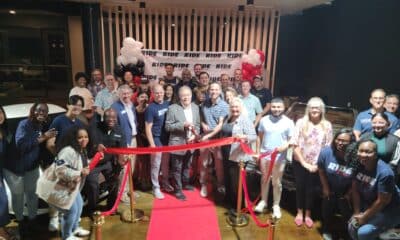Education
Stripling Elementary Sets Sights on STEM Certification
Published
1 year agoon
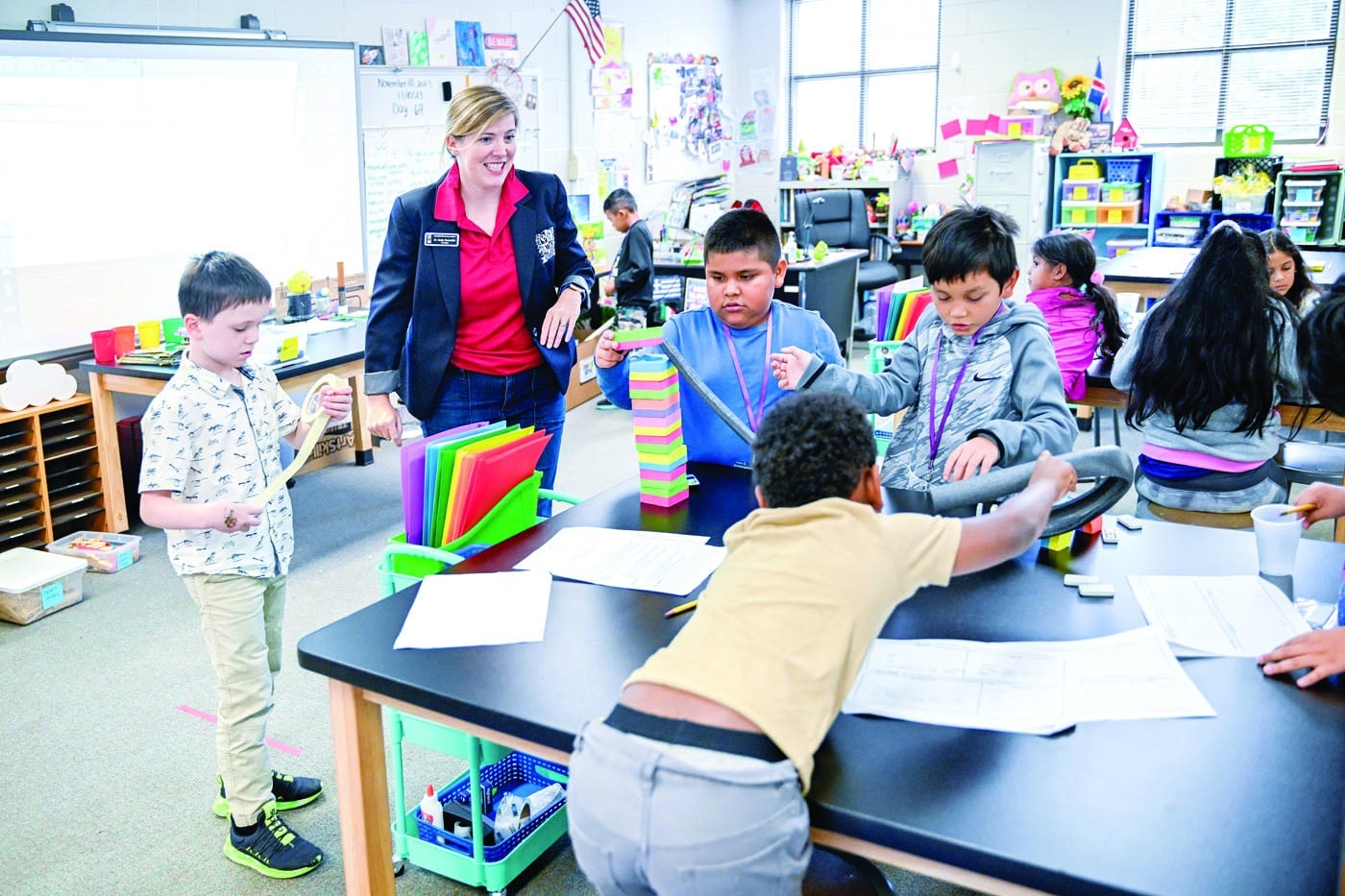
The World Economic Forum, a not-for-profit foundation headquartered in Geneva, Switzerland focusing on entrepreneurship, recently cited three critical skills students will need for tomorrow’s work world: problem-solving, collaboration and adaptability.
Those broad concepts can be challenging to come by. That’s why many education institutions lean toward a STEM (science, technology, engineering and math) curriculum.
In Georgia, STEM and STEAM (the ‘A’ stands for arts) education is an integrated curriculum driven by exploratory project-based learning and student-centered development of ideas and solutions.
How a STEM curriculum impacts the community

Stripling Elementary Principal Molly McAuliffe was aware of the benefits such an educational focus can have for all students, especially her student body of 800. With 84% of them qualifying for free or reduced-price lunch, it is a Title I school.
That means the Georgia Department of Education provides technical assistance, resources and program monitoring to ensure all children have a “significant opportunity to receive a fair, equitable and high-quality education and to close educational achievement gaps.”
“We like to say that [free and reduced-price lunch] classification is about how students pay for their meals. It has nothing to do with how they learn,” McAuliffe said. “Our goal is to provide a high-quality education for all students. And we believe here at Stripling Elementary that our kids can do anything they put their minds to.”
Located in the Norcross Cluster, Stripling Elementary serves families from Peachtree Corners and Norcross. The school has had a close relationship with Paul Duke STEM High School and Norcross High School.
“We’ve had student leaders from both schools come over and sort of mentor our kids in different ways,” said McAuliffe.
The Norcross Robotics team was involved with the school’s STEM night in the past, and Paul Duke students who are part of the Society of Black Engineers have put together learning sessions for the elementary kids.
“Paul Duke also has a mentoring program this year where they work with third-grade students,” she said. “They come over on Fridays and mentor some of our third graders to get them excited about school and learning and specifically about what they can learn in the STEM fields.”
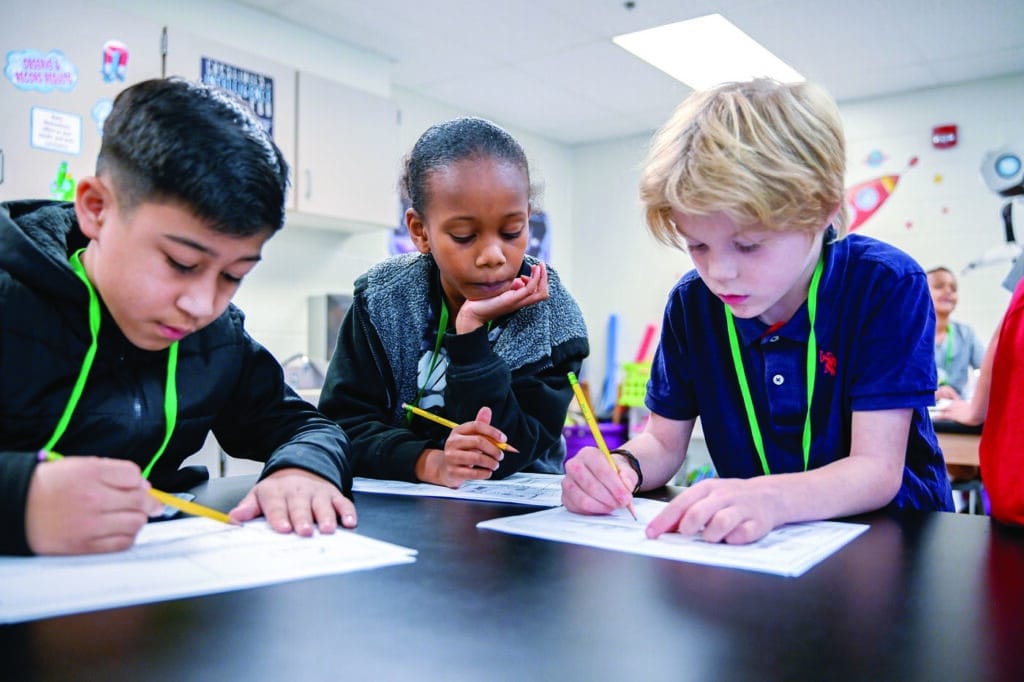
A worthwhile endeavor
With a student appetite for a new kind of learning, McAuliffe and her staff decided to become one of the few STEM-certified elementary schools in the county. Of Gwinnett County’s 88 elementary schools, three have state STEM certification.
“We looked at [our school mission] as a team and updated it this past summer with our instructional leadership team. When we looked at our vision about students becoming responsible, empathetic and driven world-class leaders, we thought about how we can achieve that,” said McAuliffe.
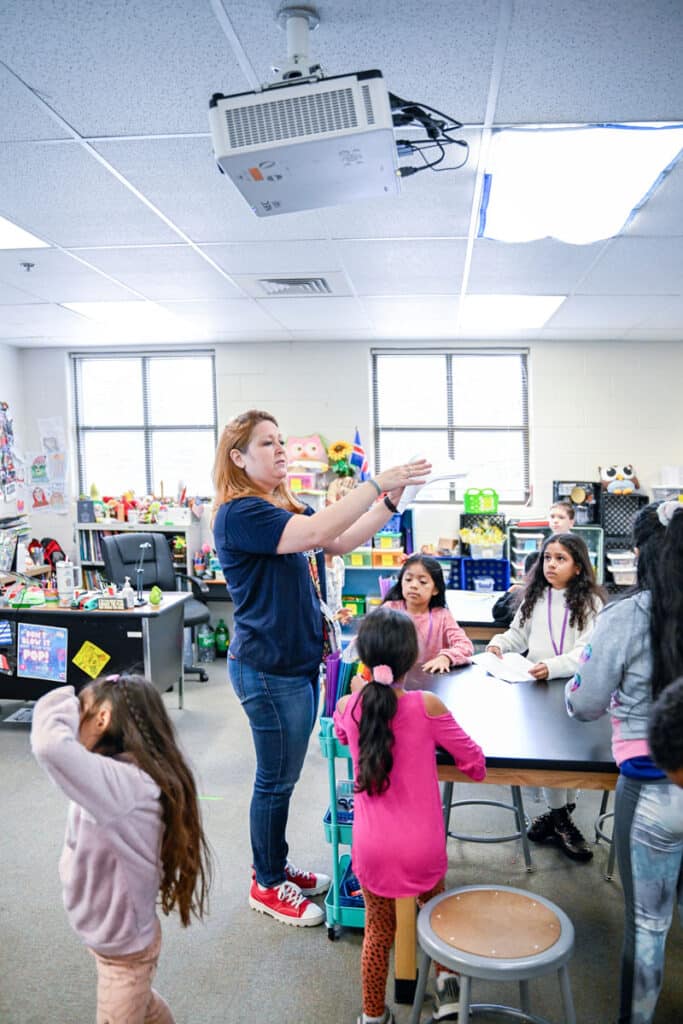
“Things like encouraging effective communication, critical thinking and innovative problem solving among our student body were at the forefront,” she added.
McAuliffe said that the school’s science director shared a fascinating statistic recently: 65% of the jobs that their students are going to be doing …do not yet exist.
“We can’t be giving them specific facts or figures or little bits of knowledge. That is not going to help them. What will help them is if they know how to think critically, problem solve, be creative and effectively communicate with one another.”
Those are all components of a STEM-based curriculum.
Assistant Principal Frank Rodriguez and teacher Rebecca Phillips, now the school’s STEM coordinator, agreed to take on the STEM specials class and lead the initiative for the school.
“We’re at the beginning of this process, and we know it’s going to take about three to five years for us to get the STEM certification from the state,” said McAuliffe. “We know it’s challenging, but we also believe our kids deserve it.”
Getting students engaged
As the STEM specials teacher, Phillips said she gets the “absolute wonderful privilege of teaching every single student in the school. Just to see the kids spark up and get excited about the problems around us in the world, and maybe coming up with some solutions to solve them, is really what drives me.”
STEM uses project-based learning where children are encouraged to use their natural curiosity and creativity to solve problems.
“Kids that might just be sitting in the back of the classroom kind of bored and not interested get engaged when they have something that they can relate to and want to solve because, I think, kids in general just want to solve problems,” said Phillips.
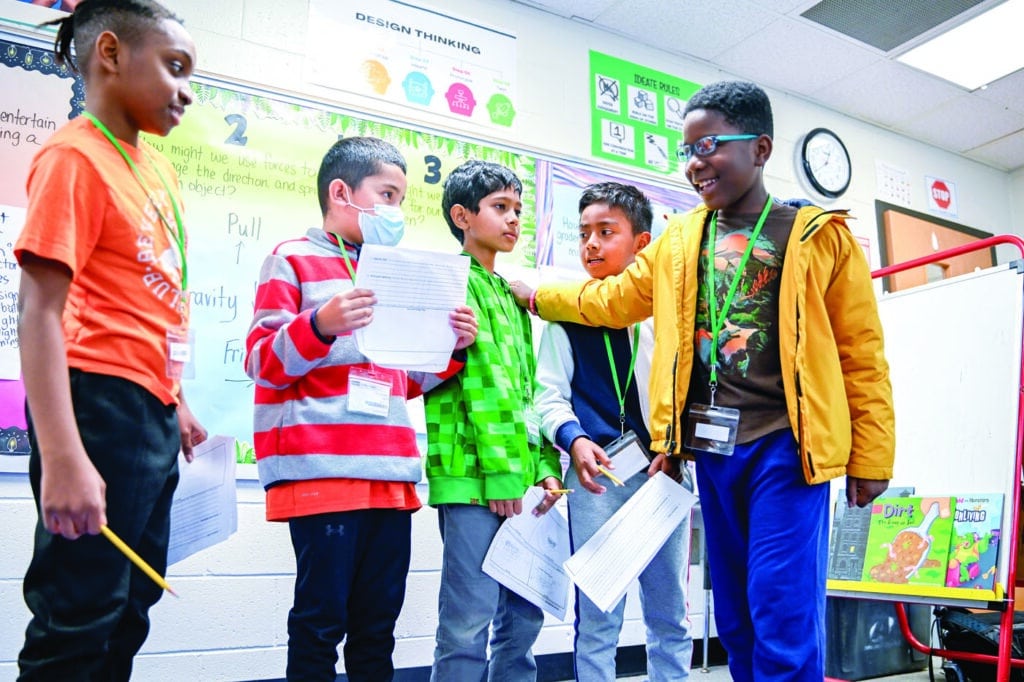
“They’re much more creative than adults, in my opinion, and they’re able to break out of that box that sometimes we get put into,” she elaborated.
She said this is especially true for non-native English speakers since project-based learning requires students to work in groups.
“It requires them to communicate, and then it gives them so much more of a desire to work to acquire that English language,” said Phillips. “I watch them being so brave and working through that kind of quiet phase a little bit more quickly because they are dying to express themselves and communicate with their teammates.”
The classes use grade-level-appropriate problems — and the students work out solutions. Recently, fifth graders were working with magnets when a student realized their STEM education could help a real-world issue.
“One kid’s dad would always get flat tires. He worked in construction and there are always nails around,” said Rodriguez. “He invented a machine that used magnets to pick up the nails in the parking area.”
Bringing staff on board
Although Stripling Elementary has just one teacher dedicated solely to STEM, it’s a concept that covers just about every subject.
“Right now, we have been trying to get more teachers involved in the STEM process,” said Phillips.
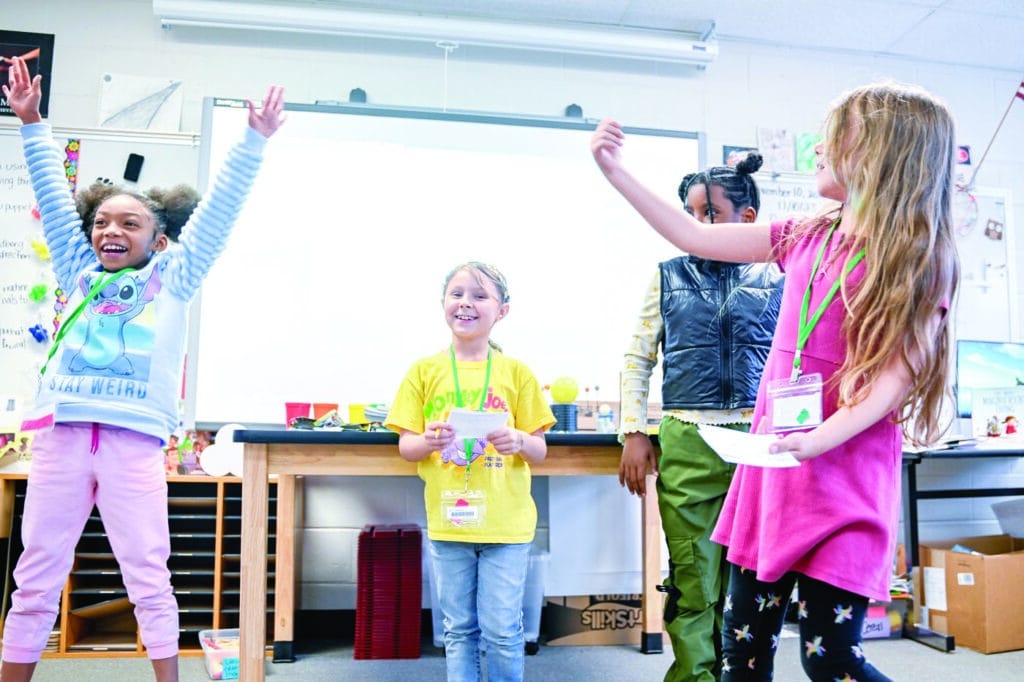
She employs the same techniques with educators that she uses to keep the kids engaged. For the past few months, several teachers have volunteered for what they call “sip and STEM” sessions.
“In October, we took on a Halloween theme and added flavored syrups like peach and blueberry to a base of Sprite,” she said. “We gave them names like Dragon’s Blood.”
Phillips also gave teachers and administrators a STEM challenge — how one might use light to scare people in a haunted house.
“She taught us quickly how to build a circuit to light up light bulbs. Then she gave us cardboard boxes and a lot of fun materials like aluminum foil. We had to build the circuit and get it to light up in 40 minutes,” said McAuliffe.
Those kinds of sharing experiences drive the point home and bring the other staffers — teachers and non-teaching staff — into the world of STEM.
“We’re still in the process of learning all of the steps we’re going to need to go through,” said McAuliffe. “But we have submitted an intent to seek certification form with the State Department of Education.”
Following the established rubric, McAuliffe is confident that Stripling Elementary will be able to add the STEM seal to its school accomplishments before the end of the decade.
Related
Arlinda Smith Broady is part of the Boomerang Generation of Blacks that moved back to the South after their ancestors moved North. With approximately three decades of journalism experience (she doesn't look it), she's worked in tiny, minority-based newsrooms to major metropolitans. At every endeavor she brings professionalism, passion, pluck, and the desire to spread the news to the people.

Community
Peachtree Corners Festival Awards Debbie Mason Drama Scholarship for 2025
Published
6 days agoon
June 2, 2025
On May 9, the Peachtree Corners Festival awarded the Debbie Mason Memorial Scholarship for Drama to an outstanding Norcross High School drama senior. The recipient was Elizabeth “Ella” Armes, a student who has been involved in the Norcross High School drama department for four years and was most recently the primary stage manager directing the high school’s performances.
According to Terry Gabbard, director of theater at Norcross High School, Ella “was vital to the success of our program. She is an incredible young lady who will be continuing her studies in media and the arts in college.”
In fact, Ella plans to continue her education and work in theater and communications at Kennesaw State University starting this fall.
This marks the third year that the Peachtree Corners Festival has awarded the drama scholarship in the name of the late Peachtree Corners Festival co-founder, Debbie Mason.
In addition to being the first “First Lady” of the city of Peachtree Corners, Debbie and her family were long-time supporters of the drama program at Norcross High School. After her passing in 2023, the Peachtree Corners Festival established the Debbie Mason Memorial Scholarship for Drama as an appropriate way to honor her legacy.
About the Peachtree Corners Festival
The Peachtree Corners Festival is a non-profit, 501(c)(3) volunteer organization dedicated to bringing a safe, wholesome and family-friendly festival to the city of Peachtree Corners each year.
The organization’s goal is to foster community pride and civic involvement, not just through the weekend-long festival, but by giving back and supporting education and beautification initiatives within the city and recognizing deserving members of the community.
This year’s Peachtree Corners Festival will take place on the Town Green, September 20–21.
For more information, visit peachtreecornersfestival.com.
Related
Education
Celebration and Community: ICAGeorgia Wraps Up School Year with Two Festive Events
Published
2 weeks agoon
May 22, 2025
The International Charter Academy of Georgia (ICAGeorgia) recently hosted its third annual Dining with the Scholars event on April 18 — an evening filled with celebration, culture and community spirit.
Held at Canton House in Duluth, the event welcomed over 200 attendees, including students, parents, teachers, board members, local sponsors and special guest, the Consul General of Japan.
Fundraising and performances
The purpose of the event was twofold: to raise funds in support of academic programs for the school and, most importantly, to honor and showcase the outstanding talents and achievements of ICAGeorgia students.

Throughout the evening, guests enjoyed a silent auction, dinner and dessert, as well as a vibrant lineup of student performances, a magic show and live music — creating a truly festive and memorable atmosphere.
“We extend our heartfelt thanks to the many local companies and organizations whose generous sponsorship made this event possible,” said Felecia Tucker-Jones, principal of ICAGeorgia. “[The] support helps us continue to grow and enhance our academic offerings.”
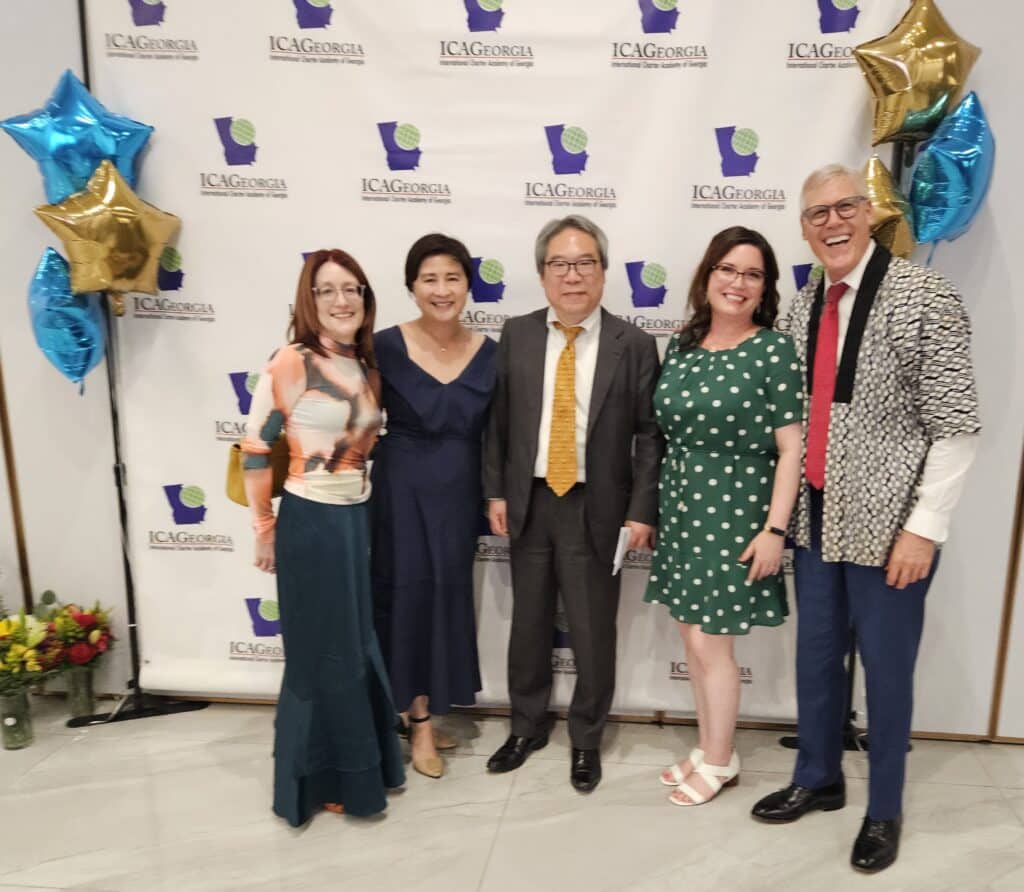
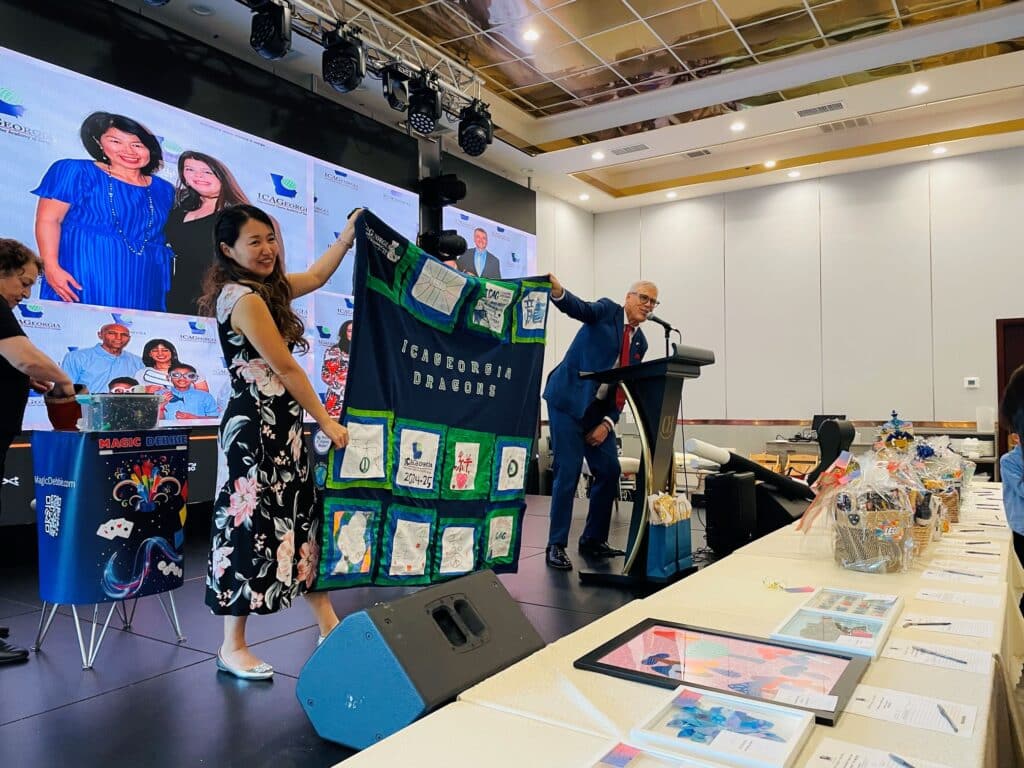
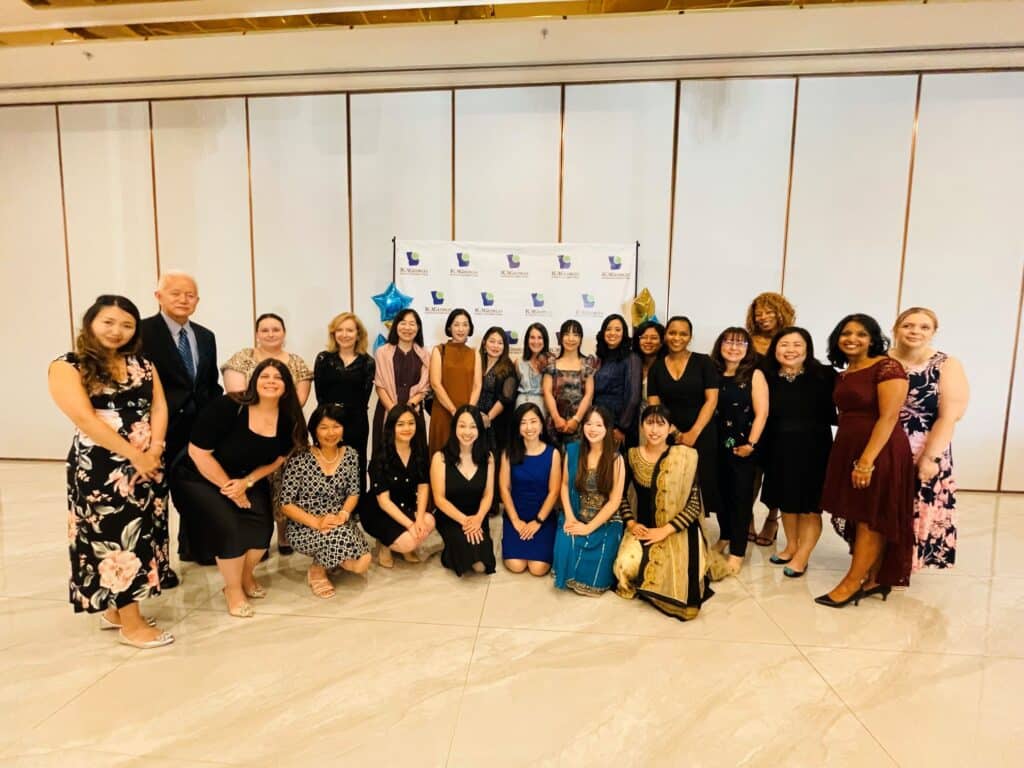

By all accounts, it was a night to remember — and a wonderful reminder of the strong, supportive community that surrounds the school.
Children’s Day Festival
On May 4, students, families and community members gathered at Thrasher Park in Norcross for a vibrant celebration of Children’s Day, a beloved Japanese holiday that honors children’s happiness, growth and well-being.

The Japan’s Children’s Day Festival 2025 brought together over 1,000 attendees for a full day of music, crafts, food and cultural experiences.
Visitors of all ages enjoyed traditional Japanese activities such as origami, kingyo sukui (goldfish scooping) and kimono try-ons, while kids played in bounce houses, participated in golf and soccer games and listened to story time in the park.
The festival’s stage was alive with performances from school choirs, dance studios and even a thrilling showcase of breakdancing and karate. Local vendors offered delicious international food — from pizza, tacos and paella to boba and shaved ice — while guests explored artisan booths and even online shopping options.
Culture and community
This festival was a beautiful reflection of cultural pride and community spirit and partnerships, with ICAGeorgia, local small businesses and generous sponsors bringing the vision to life.
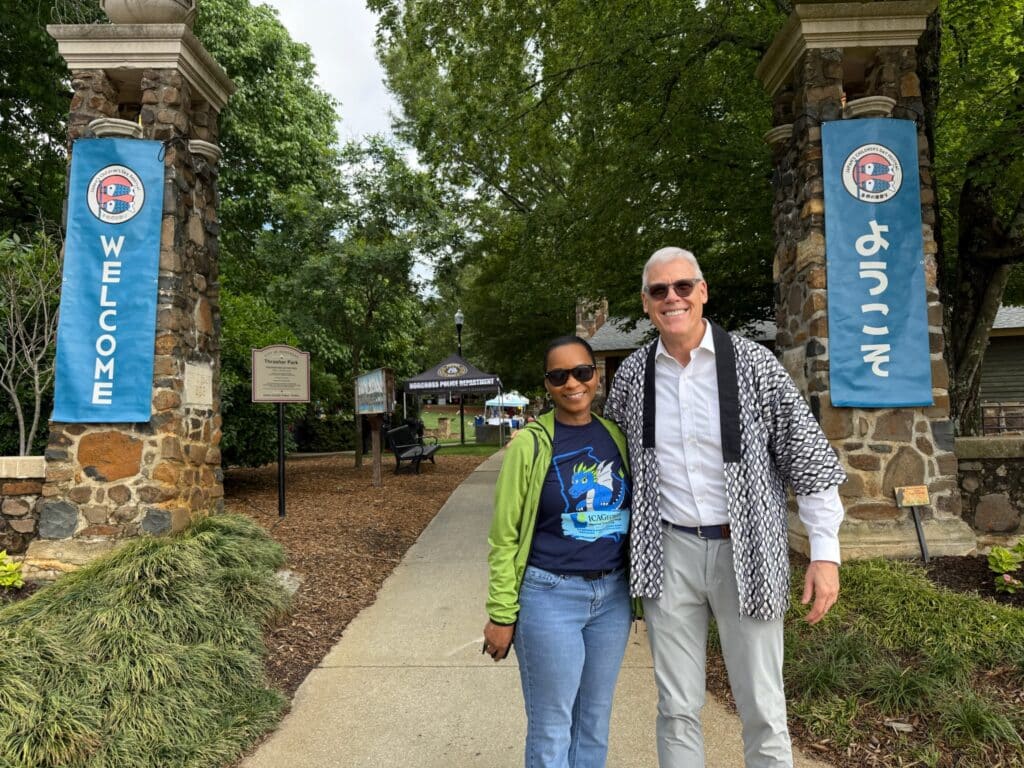
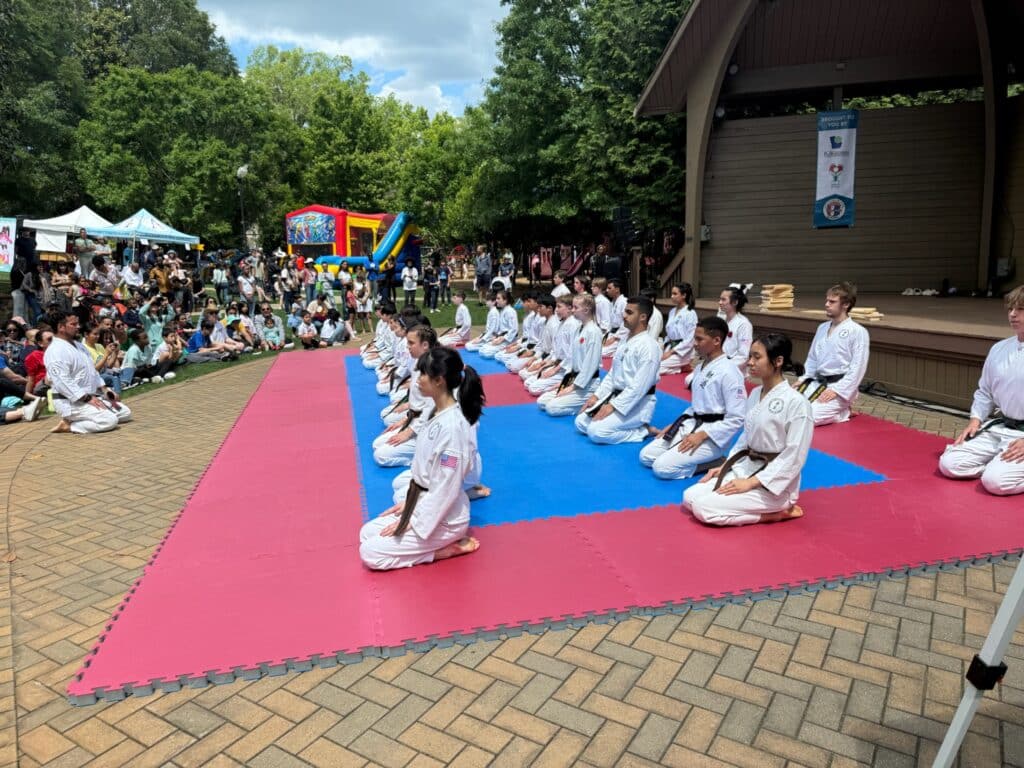


“We’re deeply grateful to all our sponsors, performers, volunteers and families who made the day so special,” said Jeremy Williams, president of the ICAGeorgia PTO.
As Norcross continues to grow as a hub for diverse cultural events, Japan’s Children’s Day Festival stands out as a joyful, family-focused experience with the goal of continuing for years to come.
Follow Japan’s Children’s Day Festival (@JapansChildrensDayFestival) on Instagram and Facebook, and stay tuned for next year’s exciting event.
About ICAGeorgia
The International Charter Academy of Georgia is a statewide charter school available free of charge to any K–6 student residing in Georgia.
Located in Peachtree Corners, the school offers a dual language immersion program in both English and Japanese, a rigorous standards-based curriculum, extracurricular activities and multiple opportunities throughout the year to engage in cross-cultural community.
For more about the school, visit internationalcharteracademy.org.
Related
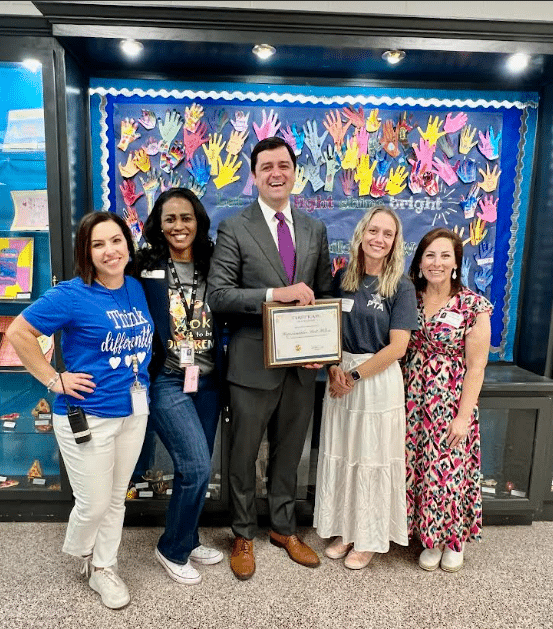
Simpson Elementary School celebrated Exceptional Children’s Week (ECW) last month with five days of special activities to recognize their special needs population and all of their exceptional students.
April 14–18 is set aside each year to celebrate children with disabilities, gifts and talents. This year’s ECW theme was Bridging Gaps and Building Futures, and the school was happy to take part.
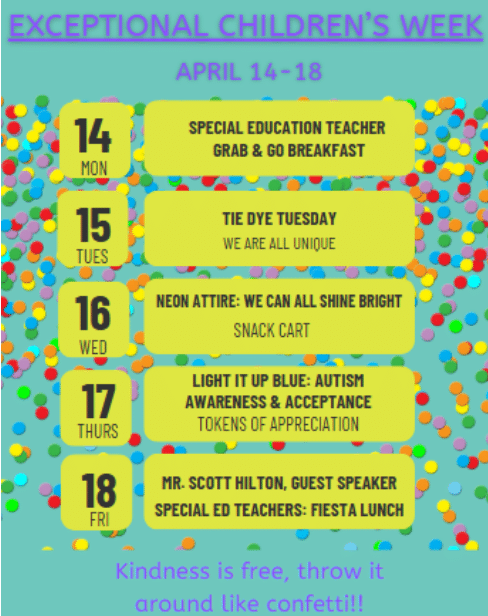

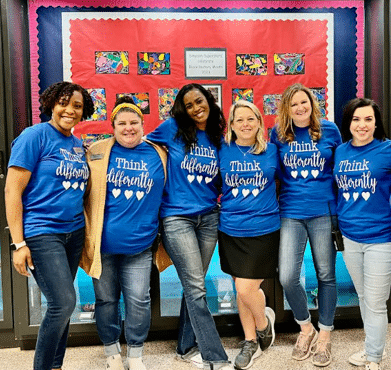
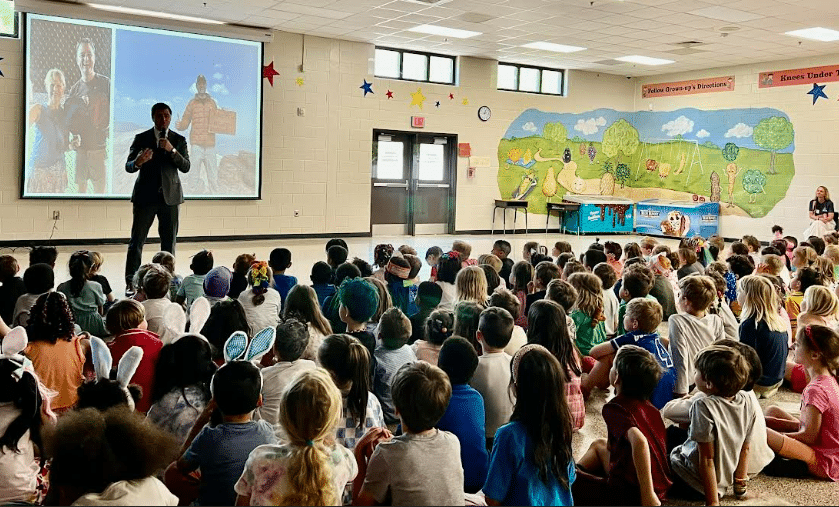
They highlighted each day of the week on the morning news with fun facts about notable people in society — and throughout history — who have overcome challenges with their disabilities, including actor Daniel Radcliffe (who has lived with dyspraxia for his entire life), Tom Cruise, Whoopi Goldberg, Frida Kahlo and Helen Keller.
Simpson Elementary’s technology team also pre-recorded various special needs classes reciting the Pledge of Allegiance every day of the week.
Guest speaker
To end their ECW with a bang, they invited former Simpson Elementary parent, State Representative Scott Hilton, to come in and speak to their K-2 classes about raising his son, Chase (who is autistic and now a student at Norcross High School), and how being different is okay.
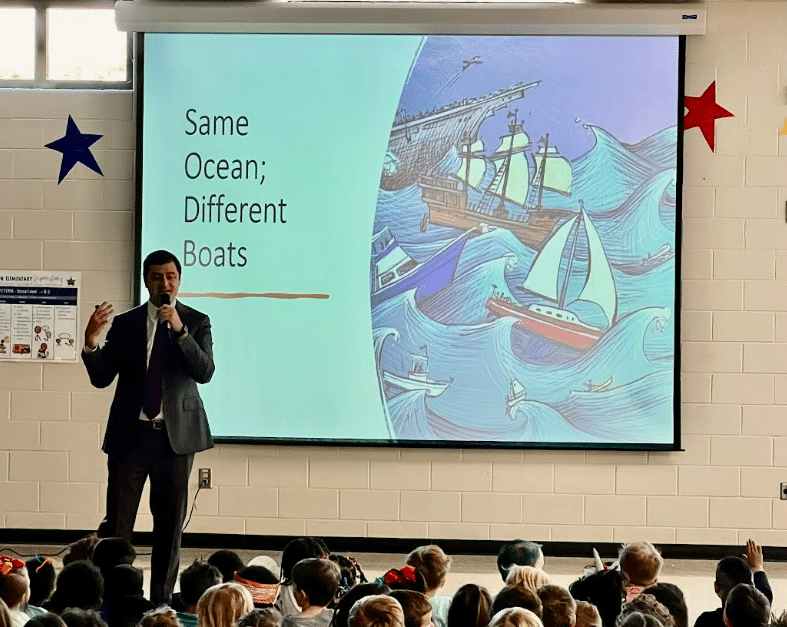

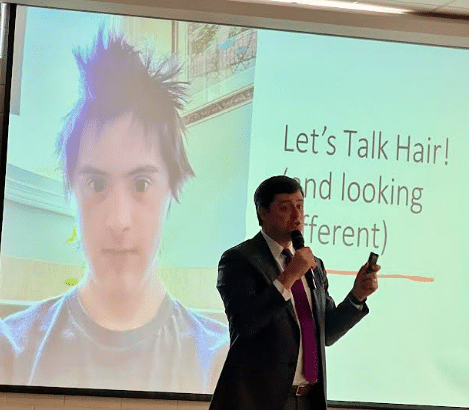
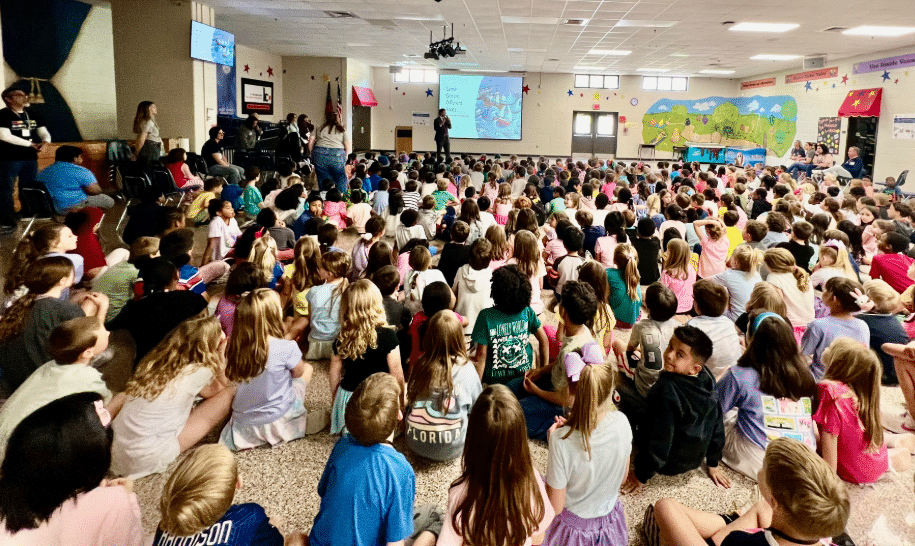
“Showing kindness and being inclusive is the best version of humanity,” said Dr. Taffeta Connery, Simpson Elementary School principal, in a statement about the event.
“Simpson Elementary has a special needs population of 214 (23%) of 946 students. [And] … we strive to ensure that our students are valued, recognized and instilled with high expectations for all.”
For more about Simpson Elementary, visit simpsones.gcpsk12.org.
Related
Read the Digital Edition
Subscribe
Keep Up With Peachtree Corners News
Join our mailing list to receive the latest news and updates from our team.
You have Successfully Subscribed!

“Geek Culture” Shines at 2025 MomoCon

Vox-Pop-Uli Launches RED Initiative for Veterans’ Support

City Collaborates with DNR for Deer Overpopulation Solutions

From Zero to Accredited: Dunwoody’s Billy Grogan on Starting a City Police Department [Podcast]

The PCBA Awards $500 to Light Up The Corners at After-Hours Event

More Than Badges: Why Community Culture Drives Great Policing [Podcast]

Peachtree Corners Festival Awards Debbie Mason Drama Scholarship for 2025

The City and PCBA Welcome Ride Lounge with Ribbon Cutting Ceremony

Eric Christ: Upcoming Elections Update

The Forum Welcomes [solidcore] with June 7 Grand Opening

More Than Badges: Why Community Culture Drives Great Policing [Podcast]

The City and PCBA Welcome Ride Lounge with Ribbon Cutting Ceremony

From Zero to Accredited: Dunwoody’s Billy Grogan on Starting a City Police Department [Podcast]

Mustache The Band Set to Play the VoxStage on June 14

City Collaborates with DNR for Deer Overpopulation Solutions

Peachtree Corners Festival Awards Debbie Mason Drama Scholarship for 2025

Light up the Corners [Video]

Capitalist Sage: Business Leadership in Your Community [Podcast]

Cliff Bramble: A Culinary Adventure through Italy

Top 10 Brunch Places in Gwinnett County

A Hunger for Hospitality

THE CORNERS EPISODE 3 – BLAXICAN PART 1

Top 10 Indoor Things To Do This Winter

The ED Hour: What it takes to Remove Barriers from Education

Peachtree Corners Life
Topics and Categories
Trending
-
Podcast4 days ago
From Zero to Accredited: Dunwoody’s Billy Grogan on Starting a City Police Department [Podcast]
-
Podcast3 days ago
More Than Badges: Why Community Culture Drives Great Policing [Podcast]
-
Business4 days ago
The City and PCBA Welcome Ride Lounge with Ribbon Cutting Ceremony
-
Entertainment4 days ago
Mustache The Band Set to Play the VoxStage on June 14







